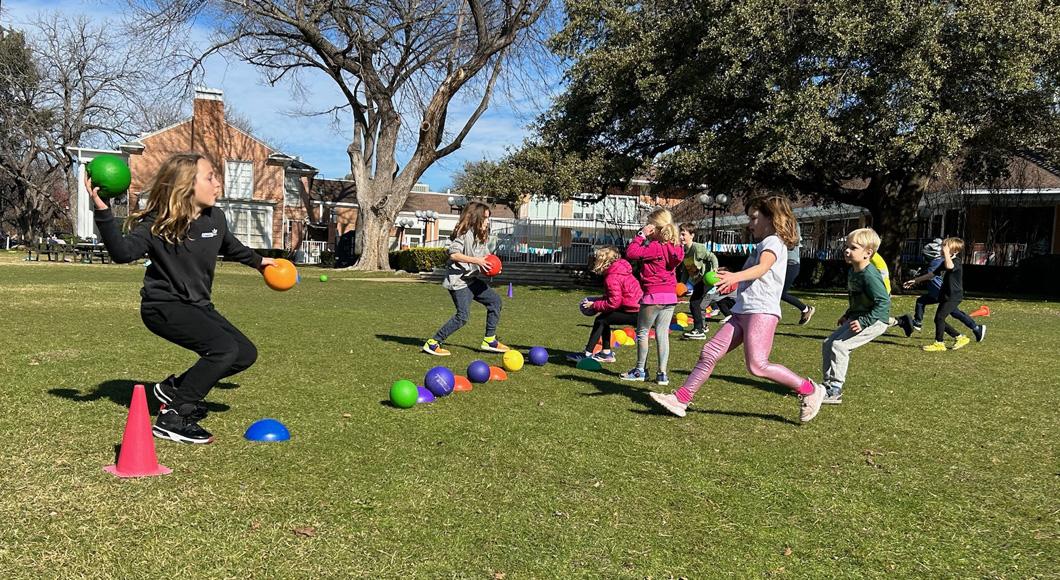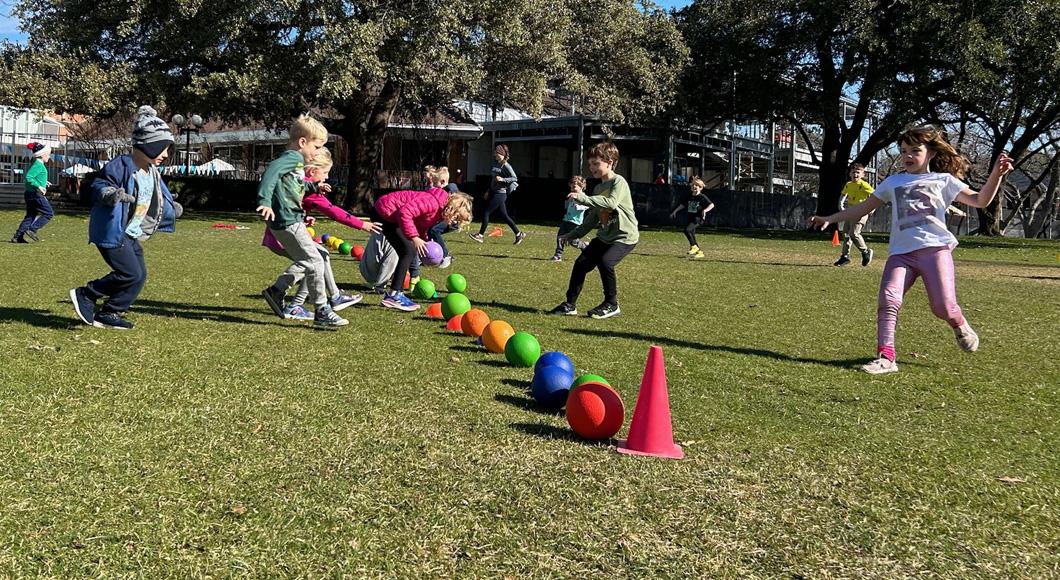The importance of discussing and actively using positive descriptors with your child extends into every area, especially the home. Compassionate. Brave. Team player. Patient. What do all these words have in common? Well, they’re all words a counselor might use to describe a camper during the end-of-week camper recognition at Cooper Fit & Fun Camps. And though it might seem strange to present a character trait as special recognition, it is actually an integral part of building a healthy environment where kids can thrive.
So, from a camp director’s perspective, here are four reasons why you should talk to your child about character qualities.
>> RELATED READ :: It’s Okay for Kids to Feel Angry :: Helping Parents Navigate Big Feelings <<
1. Develop a Healthy Understanding of Self
In today’s culture, children are inundated with information, insecurities, and verbiage from their peers, making it difficult for them to maintain a balanced perspective on what makes them unique. As they develop, kids incorporate the words they hear into their sense of self much faster than adults, which reflects in the way they think about themselves.
One of the best ways to prepare your child to face social situations is to carve out time and space where he or she can receive the feedback of attentive and encouraging adults. This can be as simple as discussing the meaning of words such as “generosity,” or as involved as letting your child reflect on what characteristic he or she demonstrated in a particular situation. This gives children an opportunity not only to receive positive affirmation from others, but also learn how to recognize specific, positive character traits in themselves.

2. Establish a Common, Easy-to-Understand Lingo
When training my camp counselors, I establish a common language that both counselors and campers can use when discussing behaviors, whether positive or negative. When a child disobeys, it is easy to use quick statements like “you need to be nicer” or “don’t do that.”
The downside to this is the lack of clarity — those statements don’t establish what specific behavior the child should avoid, or exactly how the child should’ve been “nicer.” It misses out on the opportunity to make the undesired behavior clear, to set expectations, and then coach a child in the desired character trait.
>> RELATED READ :: Best Places to Buy a Bike in Dallas <<
By routinely taking a few extra minutes to define positive traits, both adult and child can connect the dots between what kind of behaviors we expect when using that word and why.
Moreover, once a child has been given the ability to put something into words, it opens up the door for positive “language” that is easy for even young children to understand. If they already know the meaning of desirable character qualities, it encourages them to be “kind” or “gentle” or “confident” when facing future situations, rather than simply label themselves as “disobedient” or “rude.”

3. Encourage Children to Practice Using Positive Word Choice
Last but not least, talking about specific traits also helps children develop the habit of talking positively about his or her own character, as well as the characters of those around them.
One of my favorite stories from summer 2024 was when a mother called to let me know that her son, who had attended multiple weeks of camp at Cooper Fitness Center, was given an assignment on his first day of school to describe himself in three words. To her surprise, all three words he listed were one of the character qualities a counselor awarded him during the summer! So, despite the fact that he didn’t seem overly excited about receiving those specific words in the moment, he clearly absorbed them into his beliefs about himself.
This is a prime example of the impact words have on our kids, especially when given by someone they look up to. Though it may seem simple on the surface, children really do learn best when led by example.
In other words, just telling them what a characteristic means won’t be enough to get them to use positive words on their own — we must show them. Thus, to discourage negative behaviors, it takes a concentrated effort in affirming positive qualities every opportunity we get. This is one of the single, biggest impacts you can have on your child, and it all starts at home.
>> RECOMMENDED RESOURCE :: Extracurricular Activities for Kids in DFW <<
4. Discuss Core Values Daily
This standard for encouragement and growth is what we want every child to experience at Cooper Fit & Fun Camps. This is why we train our staff to discuss our core camp values (teamwork, positivity, grit, respect, and kindness) on the daily. Our large variety of sport and camp activities gives campers the opportunity to try new things, learn from their mistakes and most important, recognize the unique character qualities each child brings to camp.
Cooper Fitness Center has offered youth programs for nearly 30 years. In addition to year-round camp experiences, Cooper Fitness Center offers a variety of year round fitness programs, youth events, and sports training to keep kids active and having fun while instilling healthy habits early.
Register your camper ages 5 – 12 for Cooper’s winter break camps at cooperyouth.com today:
- Merry & Bright Camp :: December 20, from 9:00 a.m. – 4:00 p.m.
- Winter Break Camp :: January 2 – 4, 2025, from 9:00 a.m. – 4:00 p.m.
 Nicole Bruner is camp & youth program manager at Cooper Fitness Center. With a background in kinesiology, she has 10 years of experience working with youth in a wide variety of settings and is passionate about providing experiences where children and their families can build memories together.
Nicole Bruner is camp & youth program manager at Cooper Fitness Center. With a background in kinesiology, she has 10 years of experience working with youth in a wide variety of settings and is passionate about providing experiences where children and their families can build memories together.













